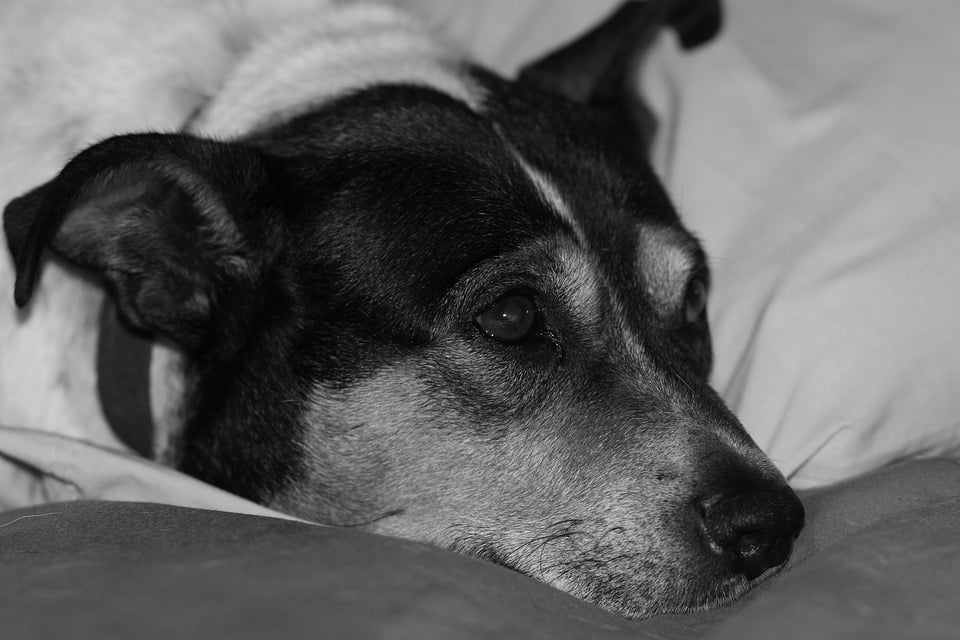Anxious Dog and Peak Pets Calming Supplements
Do you think your dog is anxious? A lot of owners are surprised to learn that dogs can suffer from anxiety and stress in a similar way to humans. There are some breeds that are prone to these traits, as well as environmental factors coming into play. It is important to realize that you can help your furry friend deal with their anxiety. From working out what the trigger is to choosing the right calming supplement, anxiety does not have to be an overbearing problem in your pup’s life. Let’s take a closer look at how to resolve this issue.

Work Out What the Trigger Is
There is a range of reasons why your furry friend might be feeling anxious or stressed out. For example, some dogs hate fireworks and bonfire night. The loud noises are an obvious trigger that makes your pooch quiet, shake or hide. Then there are canines that have separation anxiety and struggle when their own is away at work during the day. They can cause destruction in the house, as well as bark and show undesirable behaviors. Some other common triggers include:
- Unfamiliar people
- A new environment
- Traveling
One way you can help your dog is figure out what the trigger is. A lot of the time, it is going to be quite obvious. Once you have worked out the trigger, you can decide the best course of action for your furry friend.
Consider an Anxiety Calming Supplement
Calming supplements from Peak Pets might be just what your dog needs to overcome their problems. Made from natural ingredients, this is a supplement that is designed to promote calmness and relaxation. You simply add it to your dog’s food and with a beef flavor, they are not going to know they are taking a supplement. This is a supplement that can help with anything from separation anxiety to travel and grooming fears. Pets can take calming supplements every day if your pooch is suffering on a regular basis from anxiety and stress. Alternatively, if your dog is only anxious when they are traveling or on one-off occasions, they can be taken before a big change in their lives. Always check out the supplement you buy to see what the dosage is that they recommend. This will be on the label.
Combine with Training your Anxious Dog
There is no doubt that a calming supplement is going to help your pup. It can help to rebalance the hormones and allow them to remain calmer and more collected in stressful situations. But, you also want to help your canine adjust to changes in their environment.
You are going to be able to do this by combining a calming supplement with regular training. This way, your dog can work through their problems and gain confidence. It will be beneficial in the long run.
For example, if your canine is not used to being left alone for long periods of time, this is something you can work through. For example, you can start crate training them, as well as providing boredom busting toys. Leaving your dog for short amounts of time first is a good way to reassure them that you are coming back home.
Recognizing the Signs of your Anxious Dog
Something very important is for dog owners to recognize the signs of anxiety in their furry friend. This is going to be the first step in the right direction. There are a few obvious signs that are going to indicate that your canine is suffering from anxiety and stress. So, let’s take a look at them.
Excessive panting is a sign that shows stress. A lot of people think that they dog do this when they are exciting or too hot. Indeed, this can be true. But, if you notice they are excessively panting in a situation that does not require this, it could be down to stress. There can be more vocal signs that your dog is struggling. This includes barking and whining. In particular, this can be when they are alone or even at you in a stressful situation.
Normally, the barks are close together and the whining can be excessive. There are also some physical signs you can look out for that demonstrate anxiety and stress. This includes shaking and trembling. They can also cower and show more of the whites in their eyes. Other dogs can suffer from diarrhoea and spontaneously urinating in the house when their owners train them.



